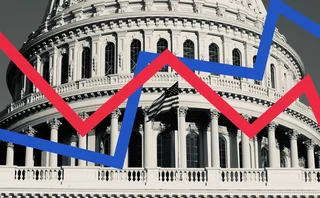
The hidden effects of stress on risk takers
Trader turned neuroscientist urges financial firms to monitor trader physiology, hire fewer physicists

John Coates traded derivatives at Goldman Sachs and ran a desk for Deutsche Bank before quitting his job on Wall Street to study the biology of risk taking. Today, he advises hedge funds, asset managers and banks on how hormonal changes can affect the performance of their risk takers – and what to do about it.
Coates, who left banking in 2004 to research neuroscience at the University of
Only users who have a paid subscription or are part of a corporate subscription are able to print or copy content.
To access these options, along with all other subscription benefits, please contact info@risk.net or view our subscription options here: http://subscriptions.risk.net/subscribe
You are currently unable to print this content. Please contact info@risk.net to find out more.
You are currently unable to copy this content. Please contact info@risk.net to find out more.
Copyright Infopro Digital Limited. All rights reserved.
As outlined in our terms and conditions, https://www.infopro-digital.com/terms-and-conditions/subscriptions/ (point 2.4), printing is limited to a single copy.
If you would like to purchase additional rights please email info@risk.net
Copyright Infopro Digital Limited. All rights reserved.
You may share this content using our article tools. As outlined in our terms and conditions, https://www.infopro-digital.com/terms-and-conditions/subscriptions/ (clause 2.4), an Authorised User may only make one copy of the materials for their own personal use. You must also comply with the restrictions in clause 2.5.
If you would like to purchase additional rights please email info@risk.net
More on Investing
Investors turn to costly ‘all weather’ hedging strategies
Geopolitical and technology risks spur demand for multi-strategy QIS tail hedges
There’s a punt factor in stocks that investors might be missing
Speculative trading creates linkages between crypto and equities that vary depending on the stocks in question
How US shutdown set off long-awaited basis bet
Hedge funds dust off a years-in-the-making relative value trade to profit from fallback mismatch
Passive investing and Big Tech: an ill-fated match
Tracker funds are choking out active managers, leading to hyped valuations for a dangerously small number of equities
FSB chief defends global non-bank regulation drive
Schindler slams ‘misconception’ that regulators intend to impose standardised bank-like rules
Crisis-era CDO protection keeps on giving for Athene
Apollo-owned insurer still sees payments from sold CDS protection on a 2006 synthetic resecuritisation
Will lifer exodus kill Taiwan’s NDF market?
Traders split over whether insurers’ retreat from FX hedging is help or hindrance
Calamos brings popular US autocall ETF to Europe
Dublin filing points to Q1 launch for Calamos Autocallable Income Ucits ETF








